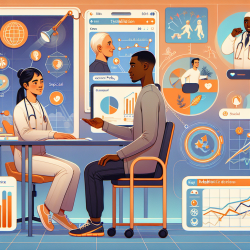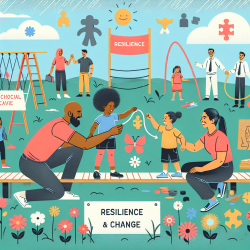Understanding the IEP Process: A Data-Driven Approach
Feeling lost when it comes to IEP planning and meetings? You're not alone. Many Speech Language Pathologists (SLPs) working in schools face challenges in navigating the complexities of Individualized Education Programs (IEPs). However, with a data-driven approach, you can transform your IEP meetings into informed and effective sessions that lead to great outcomes for kids.
The Importance of Data in IEP Planning
Data is your best friend when it comes to IEP planning. It provides a factual basis for decision-making, ensuring that every step you take is backed by evidence. Here's how you can leverage data to enhance your IEP meetings:
- Collect Comprehensive Data: Gather information from various sources, including assessments, teacher observations, and parental input. This holistic view helps in understanding the child's needs better.
- Analyze Patterns: Look for trends in the data that might indicate specific areas where the child is struggling. This can guide your therapy goals and strategies.
- Set Measurable Goals: Use data to set realistic and measurable goals for the child's progress. This not only helps in tracking improvements but also provides a clear path for therapy.
Effective Communication in IEP Meetings
Clear communication is key in IEP meetings. As an SLP, your role is to ensure that all stakeholders, including teachers and parents, understand the data and its implications. Here are some tips for effective communication:
- Simplify Complex Data: Break down complex data into understandable insights. Use visual aids like charts and graphs to illustrate points.
- Engage Parents and Teachers: Encourage questions and discussions. This ensures that everyone is on the same page and committed to the child's progress.
- Provide Actionable Recommendations: Offer clear and actionable recommendations based on the data. This helps in creating a focused plan for the child's speech therapy.
Leveraging Online Therapy for Better Outcomes
Online therapy services, like those offered by TinyEYE, can be a game-changer in implementing IEPs effectively. They provide flexibility and accessibility, ensuring that therapy sessions are consistent and convenient for all parties involved. Here's how online therapy can enhance your IEP meetings:
- Accessibility: Online platforms make it easier for parents and teachers to participate in meetings from anywhere, ensuring full attendance and engagement.
- Consistency: Regular online sessions help in maintaining continuity in therapy, which is crucial for the child's progress.
- Data Tracking: Many online therapy platforms offer tools for tracking progress, making it easier to gather and analyze data for future IEP meetings.
Conclusion
IEP meetings don't have to be overwhelming. By focusing on data-driven decisions and leveraging the benefits of online therapy, you can create a more informed and effective process that leads to better outcomes for kids. Remember, every piece of data is a step towards a successful therapy journey.










